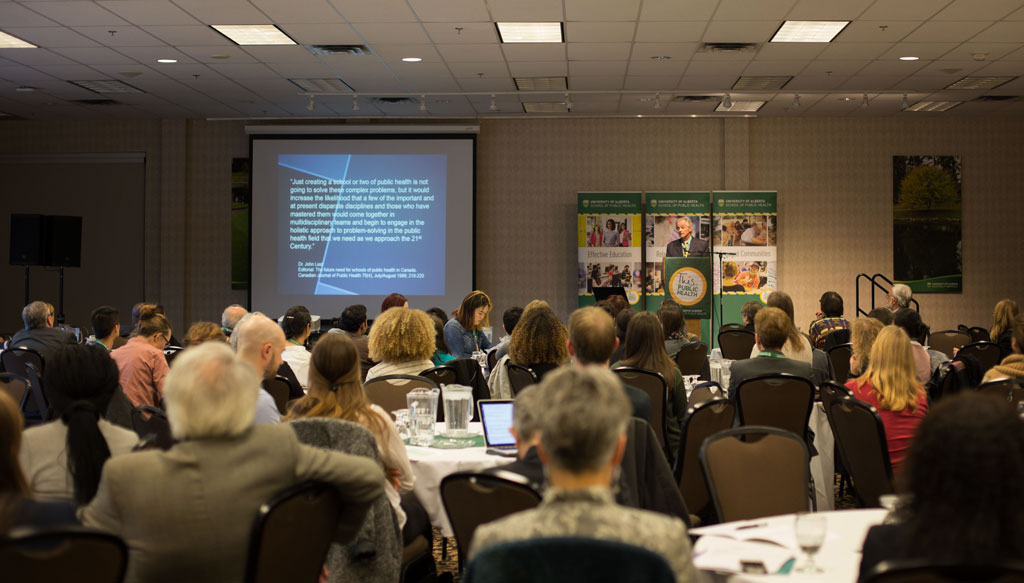
James Chauvin, keynote speaker at the International Forum on Public Health Education.
Who needs schools of public health? According to James Chauvin, keynote speaker at the recently held International Forum on Public Health Education, everyone does.
Chauvin is the past-president of the World Federation of Public Health Associations and has spent over 40 years working in various areas of public health in over 40 countries-although he does not have a public health degree.
While working in community development in Haiti and Tunisia in the late 1970s, Chauvin realized a master of public health degree would make him more proficient and effective. But, as he found out quickly, there were no schools or programs of public health in Canada, so he was forced to seek out an equivalent. He enrolled within the Department of Health Care & Epidemiology at the University of British Columbia where he earned-what he calls-"as close as possible to a Canadian hybrid of a masters of public health."
"Did I need an MPH to end up where I am today? No. But it was a different world, a different time and a different place back then," explained Chauvin.
Chauvin believes that, although specialized public health training was not needed in the late 70s and early 80s, it is an asset today. In a field that is constantly evolving and changing, and with issues becoming more complex, he believes a degree in public health is invaluable to young professionals and would further support those with other training or experience.
This sentiment was echoed throughout the remainder of the conference.
On November 2 and 3, the School of Public Health welcomed 176 delegates to Edmonton, Alberta from seven provinces, one territory and eight countries to discuss issues and questions about the importance of public health education.
Public health researchers, professionals, practitioners, educators and students considered the vital role of schools of public health through plenaries, poster and oral presentations, and workshops. Delegates shared information and ideas about common challenges public health education is facing today, how to overcome them, innovative teaching methods, and the importance of collaboration and partnerships.
"In this changing landscape, developing leaders who can think critically and work collaboratively to address our world's most pressing public health issues is more important than ever," says Kue Young, dean of the School of Public Health. "This conference was an opportunity for delegates to discuss strategies and best practices on how to do this."
Beyond developing young professionals, Chauvin stressed the importance of schools of public health for other specific groups such as universities, prospective employers, the public, other professions and public health associations. He highlighted the importance of such schools for the current public health workforce.
"In Canada, 93 per cent of public health workers do not have a degree or formal post-secondary education specifically in public health," explained Chauvin. "These individuals do their jobs well and capably, but having the opportunity to receive specialized training would perhaps allow them to do their jobs even better."
Chauvin closed his keynote address by challenging delegates and schools of public health not to become complacent when it comes to advocating for transformative and sustained improvement in human health, and addressing the issues of health equity and health as a human right.
"We should be indignant about health inequity in Canada and around the world," said Chauvin. "We should shake the cage and challenge those in power about why some are more equal than others in our society. That is what public health is all about."
More information regarding the conference, including PowerPoint presentations by invited speakers and concurrent session presenters, as well as photos, are available on our website.